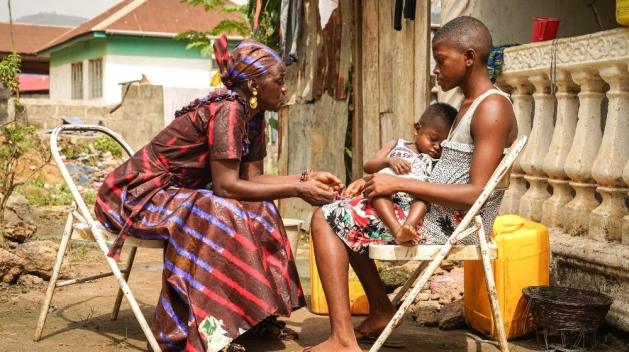The Ministry of Health in Kenya recently reported there were 45,754 cases of adolescent pregnancies between January and February this year – that translates to 700 cases a day. Of the total number, at least 2000 of these cases resulted from sexual and gender based violence (SGBV), a figure which is likely lower than the reality.
What is more is that every week, 98 girls were reported to have contracted HIV in the study period.
Having been a teenage mother myself and now a sexual and reproductive health advocate, the worrisome statistics hit close to home. As Kenyans, we have cultivated and normalized a culture of public outcry on issues of concern and shortly thereafter, swiftly moving on.

This must change. We must pay attention to this crisis and address it. The price to pay if current trends continue is too high, as this directly touches on the lives of the future of our great Republic.
The effects of teenage pregnancy are often deleterious affecting that affect the social and, economic aspects of young mothers. Consider that often, teenage mothers drop out of school due to the stigma, and are inadequately supported postpartum to return to school in their new status of motherhood.
Disruptions in education ultimately perpetuate a vicious economic dependency cycle, often on people who abuse their vulnerability. There are also health risks involved like infections and obstetric fistula among others – as well as mental health challenges including anxiety and depression. Additionally, babies born to adolescents are more likely to have low birth weight and severe neonatal conditions.
The startling figures from earlier this year point to two scenarios. On the one hand is that adolescents are engaging in consensual sex amongst themselves. This could be attributed to curiosity and the raging hormonal changes that come flooding in at puberty.
On the other hand, incidents could point to a sexual and gender based violence crisis that is perpetuating the teenage pregnancy crisis in the country. For both scenarios, Kenya has a robust legal and policy framework to prevent these crises that must be better employed.
The Constitution, which is the supreme law of the land, explicitly guarantees the right to reproductive health in Article 43. This is working in tandem with the National Adolescent Sexual and Reproductive Health Policy (2015) that employs a preventive approach to teenage pregnancy through, among others, the access to correct sexual and reproductive health information.

Additionally, is the Return to School Policy that provides guidelines on the reintegration of adolescent mothers to school, postpartum. Additionally, the Children’s Act, the Sexual Offences Act and the Penal Code all prescribe strict punishment for sexual and gender based violence.
These are complemented by the Kenya School Health Policy which ideally safeguards learners from the same.
So, there are laws, but the problem lies in the implementation – or lack thereof, of these solid frameworks.
Implementation is additionally hindered when duty bearers misinterpret or are unaware of their own policies. Just recently, a senior Ministry of Health official publicly stated that giving contraceptives to minors is a criminal offense punishable by a jail term of up to 20 years.
This is however not a true representation of the existing legal and policy framework. In his erroneous statement that pointed to a draft policy that is yet to be passed, the ministry official misled millions of Kenyans.
The crisis at hand shows how critical it is for adolescents to receive correct information on sexual and reproductive health, products and services to make wise decisions. Opponents argue that this would increase promiscuity among adolescents.
However, that perspective remains an inadequate rejoinder because the fact of the matter is that whether we like it or not, teenagers are having sex – a lot of it too. They therefore need to freely make informed decisions that protect their health and their future.
As we move into the month of May which is dedicated to preventing and ending teenage pregnancies worldwide, the Kenyan government must intentionally work on ending the scourge that has persisted over the years.
The Ministry of Health must provide products and services for prevention and mitigation in accordance with the law. The Ministry of Education must work to standardize and deliver comprehensive sexuality education across the country.
To galvanize this, Kenya must reaffirm the regional Ministerial Commitment on Comprehensive Sexuality Education and Sexual and Reproductive Health Services for Adolescents and Young People in Eastern and Southern Africa which it signed in 2013 but shied away from recommitting to in December 2021.
The Ministry of Interior and Coordination of National Government under which security falls, must work to investigate and provide evidence for the prosecution of perpetrators.
The Ministry of Culture must also fight against harmful traditional practices that feed into the crises. This should all be in collaboration with the relevant ministries that house the youth affairs and gender affairs dockets respectively. Until then, the health, life and future of Kenyan girls hang in the balance.
Stephanie Musho is a human rights lawyer and a Senior New Voices Fellow at the Aspen Institute